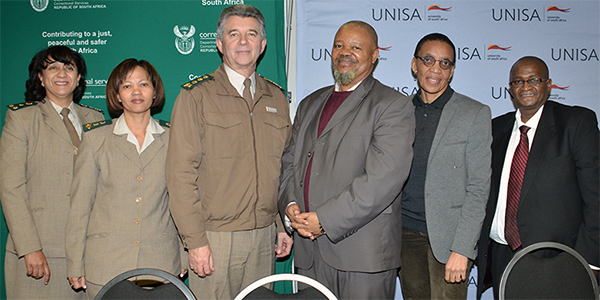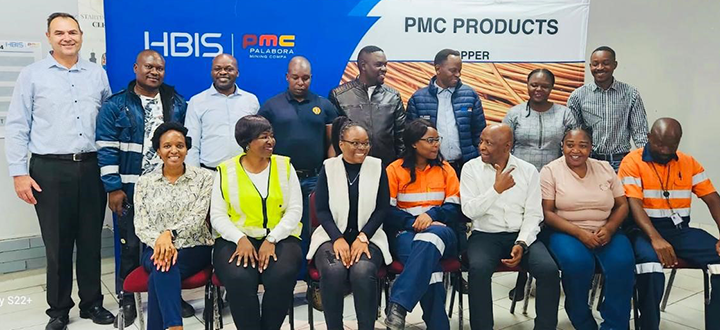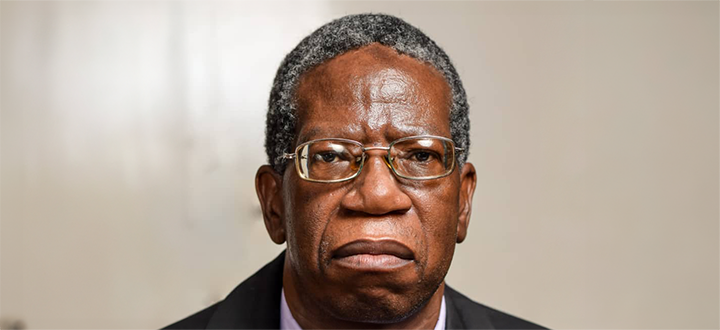Leading change
Changing inmates’ lives forever
The formalisation of a fruitful and long-standing relationship—one that has produced thousands of graduates over decades—took place on 9 June 2017. Unisa and the Department of Correctional Services (DCS) concluded a memorandum of understanding (MoU) to continue to provide tertiary education for inmates in South Africa’s correctional facilities.

Marianne Johnson (DCS), Dr Minette Plaatjies (Deputy Commissioner: Personal Development, DCS), James Smalberger (Chief Deputy Commissioner: Incarceration and Corrections, DCS), Prof Mandla Makhanya (Principal and Vice Chancellor, Unisa), Prof Gugu Moche (Vice-Principal: Teaching, Learning Community Engagement and Student Support), and Prof Michael Temane (acting University Registrar)
The primary task of the DCS is to detain inmates in safe custody whilst maintaining their human dignity, developing their sense of social responsibility and promoting the general development of all inmates. Further education and training was introduced in correctional facilities in 2010 and since then more than 500 offenders have successfully completed their matric exams with a number of distinctions in different subjects.
In addition, many offenders while behind bars, have completed undergraduate and postgraduate degrees in different disciplines. More offenders have also registered for adult education and training (AET) and further education and training (FET) programmes. The programmes are directed at addressing the absence of technical skills and competencies required in the job market.
According to DCS National Commissioner Zach Modise, the department has prioritised education and the skilling of offenders as part of rehabilitation in order to ensure that, upon release, offenders return to their communities as better, changed, and law-abiding citizens. “It is this vision which led to DCS forging a partnership with Unisa in a quest to assist offenders to remain focused on their education amid their circumstances so that they can reach their full potential and achieve the best results possible.”
Unisa Principal and Vice-Chancellor, Prof Mandla Makhanya, said that the occasion presented an important opportunity for both parties to implement an agreement that will yield tangible results. “The MoU should be seen as expansive to the possibilities we offer to change the lives of inmates in a manner that can have a positive impact on society as whole.”
The Vice-Chancellor said that this opportunity was important, as inmates are the people who understand what it means to have a need to study because as part of their socialisation process they realise that they can make a meaningful contribution in the place of work, home, and civil society.
“What are the possibilities of exploring our own vision in the context of rehabilitating inmates?” posed Makhanya as he further clarified the shape of the agreement. “We need to begin to explore avenues for the proper recognition of skills acquired in prison as these skills disappear once inmates are out of prison.”
He said that this goes further to mean that we must be able to credential the sector and to find the equivalent of formal qualifications or tailor make programmes to focus in these areas. “This will enable us to further recognise prior learning (RPL) of the experiences and skills that have been acquired and to ensure that they return to their respective communities as better citizens,” said Makhanya.
James Smalberger, Chief Deputy Commissioner of Incarceration and Corrections within the DCS on behalf of the National Commissioner, indicated that the agreement was in line with the White Paper on Corrections, which takes into account the education and training needs of inmates.
He said that their development plan “stipulates that Corrections have the responsibility of ensuring inmates’ full potential in order for them lead better lives and when they are released from prison, they don’t re-offend and go back to prison”.
This is why DCS Unisa hubs were established in 2014 at the various correctional centres around the country to provide administrative support to offenders studying through Unisa. The hubs offer access to laptops with internet, printers, scanners, Unisa library materials, tutorial services and on-line submission of assignments. The hubs will also enable Unisa to provide assistance to students and assigning face-to-face or on-line tutors in accordance with their study needs.
*By Busisiwe Mahlangu
Publish date: 2017-06-14 00:00:00.0


 Unisa honours Dr OK Matsepe's enduring legacy
Unisa honours Dr OK Matsepe's enduring legacy
 Great strides towards concretising Unisa-PMC partnership
Great strides towards concretising Unisa-PMC partnership
 Mental health among men in the workplace needs more attention
Mental health among men in the workplace needs more attention
 "I owe everything to Unisa and my late supervisor's priceless mentoring"
"I owe everything to Unisa and my late supervisor's priceless mentoring"
 Majikijela - a queer scholar raising homosexuality awareness through his work
Majikijela - a queer scholar raising homosexuality awareness through his work